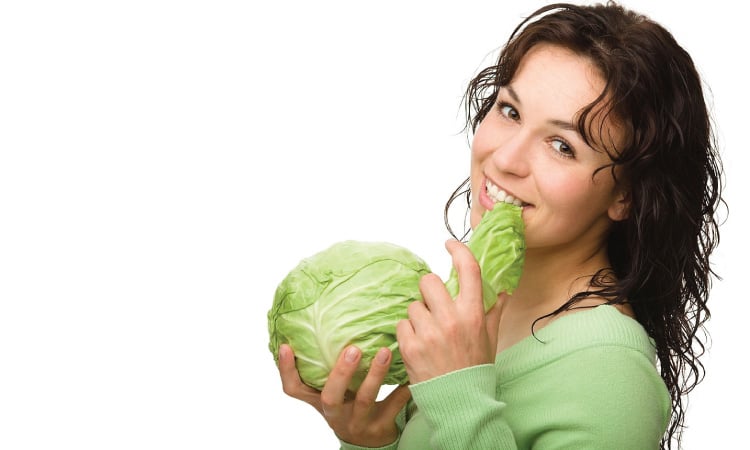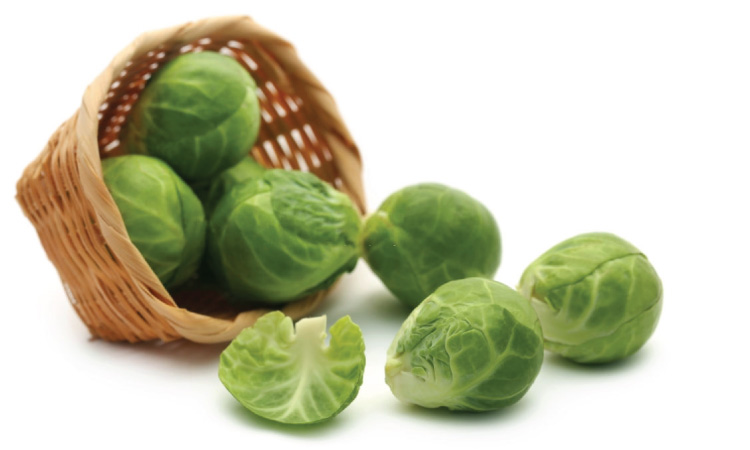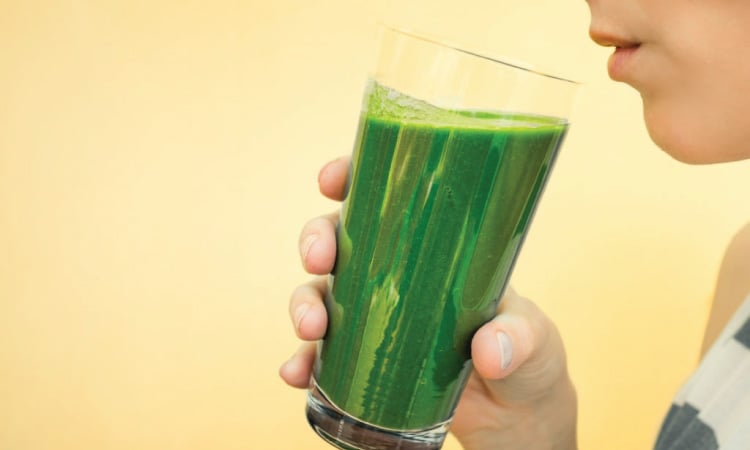Pregnant women must eat a healthy, well-balanced diet during their pregnancy. They should include a variety of vegetables in their diet to ensure the best health during their pregnancy. Veggies are packed with many essential nutrients needed for the development of the fetus. A pregnant woman, as well as her unborn baby, can benefit greatly from eating cabbage. Here is everything you need to know about cabbage during pregnancy.
Is It Safe To Eat Cabbage During Pregnancy?
Yes, cabbage can be eaten safely during pregnancy. You can find fiber, protein, beta carotene, vitamin C, minerals, and a wide range of other essential nutrients in them. During pregnancy, cabbage is not only safe but also highly recommended by health experts and is indeed one of the pregnancy superfoods.
It is recommended, however, that you do not overindulge in it. Cooking cabbage minimizes the risk of food contamination since raw cabbage leaves may contain harmful bacteria. Various yummy food items can be prepared using cabbage. Eat cooked cabbage during pregnancy to reap all its health benefits.
Nutritional Profile Of Cabbage
Cabbage is a high-fiber, low-calorie vegetable. It is composed of 85% carbs, 12% protein, and the remaining fat. This cruciferous veg is high in nutrients that are necessary during pregnancy. According to the source, one cup of raw shredded cabbage contains the following nutrients,
- A significant amount of minerals like calcium, iron, manganese, and potassium
- A noticeable amount of magnesium and phosphorus
- Traces of zinc, copper, and sodium
- A significant amount of folate
- A very high amount of Vitamin K could address 85% of the DV
- It has a significant amount of carbohydrates, protein, fiber, and fat
- Excellent amount of Vitamin C, which could address about 54 % of the DV
- Vitamin B6, folic acid, pyridoxine, niacin, riboflavin, and thiamine
Thus, one bowl of cabbage juice during pregnancy provides all essential nutrients for the health of the mother and as well as of the unborn child.
6 Benefits Of Eating Cabbage During Pregnancy

Cabbage is high in essential nutrients. Consuming cabbage during pregnancy is extremely beneficial, providing numerous health benefits to both the expectant mother and her baby.
The following are six amazing health benefits of cabbage during pregnancy:
1. Helps to avoid excess weight gain
During the second and third trimesters, pregnant women require about 300 extra calories per day. Nonetheless, pregnant women are prone to overeating. Cravings contribute to this. The downside to gaining too much weight throughout pregnancy is that it puts you at risk for premature birth, C-sections, and being overweight when the pregnancy ends.
Calculate Due Date With LMP
Diets including good amount of cabbage are low in calories. Therefore, to avoid gaining weight during pregnancy, incorporate cabbage into your diet. Weight control during pregnancy is made easier with this veggie. They are also packed with essential nutrients, so pregnant women can meet their increased nutritional needs without gaining too much weight.
2. Helps to regulate blood pressure
Hypertension during pregnancy is common. Cabbage is an excellent amount of vitamin K, which helps regulate blood pressure. Eating cabbage during pregnancy helps to beat blood pressure naturally.
Moreover, iron, manganese, calcium, potassium, phosphorous, and magnesium present in it play a significant role in regulating heart rate and blood pressure. Thus eating cabbage during pregnancy contributes to heart health.
3. Helps prevent constipation
Fiber consumption is essential for the excretion of toxins through the bile and stool. Although cabbage comes in different varieties, all of them contain a high amount of fiber. It will also help to regulate bowel movements and can be used as a home remedy to prevent constipation, a common condition during pregnancy.
4. Reduce the risk of anemia
Iron deficiency is a major contributor to anemia. Pregnant women are more vulnerable to anemia because their blood volume increases by up to 50% during pregnancy.
Cabbage is high in iron. Iron aids in the production of RBC and the increase of hemoglobin levels. As a result, eating cabbage regularly during pregnancy can help to reduce the risk of iron deficiency anemia.
5. Reduce the risk of gestational diabetes
Cabbage is one of the top three diabetic-friendly vegetables. (Spinach and Broccoli are others). Cabbage is low in starch and high in fiber content. This characteristic of cabbage helps to regulate the blood sugar level during pregnancy.
Related Reading: Spinach During Pregnancy – Benefits, Risks And Precautions
Cabbage is therefore advantageous for women with gestational diabetes. Eating cabbage during pregnancy may also reduce the risk of gestational diabetes.
6. Improves immunity
Cabbage is an excellent source of vitamin C, which is essential for maintaining a healthy immune system. This low-cost winter vegetable is high in glutamine, an amino acid that plays an important role in strengthening the immune system. As a result, eating cabbage is one of the inexpensive and simplest ways to boost immunity.
Benefits Of Cabbage For Growing Fetus

Besides enhancing and supporting the health of the mother, eating cabbage during pregnancy also benefits the developing fetus:
· Cabbage helps to prevent neural tube defects
Cabbage enhances DNA health. It contains folate or folic acid. Therefore, eating cabbage during pregnancy may help to prevent birth defects like neural tube defects in your baby
Related Reading: 18 Foods To Eat To Increase Fetal Weight During Pregnancy
· The baby may develop immune to certain cancer
Cabbage contains a compound called anthocyanins. This compound is anti-cancerous and fights against cancer-causing cells. As a result, the risk of developing cancer later in life is lower for children born to mothers who ate cabbage regularly during pregnancy
How Does Cabbage Help To Combat Oedema?
The cabbage leaf has an amazing property of drawing out excess liquid from the body. Cabbage leaves during pregnancy are, therefore, helpful in reducing swelling or edema that is quite common during this time.
A cabbage leaf, if wrapped around the swollen area, helps to reduce swelling and ease discomfort and pain associated with it. Once the leaves have become wet, change them. Repeat the process twice a day.
Note* Breast engorgement after delivery can also be reduced by this procedure.
Can I Eat Raw Cabbage During Pregnancy?
Raw cabbage may contain microbes that could result in food-borne diseases such as listeria infections. These kinds of infections can bring about adverse outcomes like miscarriage, preterm delivery, and even stillbirth. Therefore, you should avoid eating raw cabbage during pregnancy.
Risks And Precautions When Eating Cabbage During Pregnancy

Excessive consumption of cabbage during pregnancy holds some risks. Following are some side effects of excessive intake of cabbage during pregnancy:
1. Leads to flatulence
Ribose is an indigestible sugar found in cabbage. Being a complex carbohydrate, ribose passes through the intestine undigested, thereby, causing flatulence.
Therefore, excessive consumption of cabbage during pregnancy may cause gassiness and discomfort in the abdominal region. If you are prone to gas problems, limit your consumption of cabbage during pregnancy.
Related Reading: 7 Home Remedies For Abdominal Pain During Pregnancy
2. Aggravates thyroid issues
Cabbage is well known for its goitrogenic effect. This means it can potentially interfere with thyroid gland functioning. Thus, iodine deficiency coupled with high consumption of cabbage can end up in hypothyroidism during pregnancy.
Thyroid issues during pregnancy can have detrimental outcomes. However, washed, boiled, and cooked cabbage can significantly reduce its goitrogenic effect
What Precautions Should Be Taken When Eating Cabbage During Pregnancy?
As mentioned, cabbage can carry pathogenic microbes and pesticides. Therefore,
- Never eat raw cabbage during pregnancy
- Thoroughly wash cabbage leaves more than once before cooking or using them in salads
- Never overcook cabbage
- Use freshly cut cabbage for cooking
Note*: Set the sliced cabbage aside for about 10 minutes before cooking. This is because a beneficial enzyme in cabbage leaves called myrosinase will only be active 5-7 minutes after shredding it.
Related Reading: Eating Street Food During Pregnancy – 6 Potential Risks And 5 Tips To Enjoy It Guilt-Free
Tips For Choosing And Buying Cabbage When Pregnant
Quality matters. Find out some tips to choose good quality cabbage.
- Purchase cabbage grown on organic farms
- Choose cabbage with a large, dense, and firm head
- Choose the one with the bright, colorful, and has crisp leaves without cracks or blurring
- Never purchase chopped cabbage. The nutritional value of cabbage decreases as soon as it is cut
- Never buy cabbage that has had its outer leaves pulled out or that appears fluffy
Is Coleslaw Safe During Pregnancy?
Coleslaw is a salad containing finely shredded raw cabbage along with other vegetables, and mayonnaise and vinegar as salad dressing or condiment. It is good to avoid coleslaw during pregnancy as it contains:
- Raw cabbage and can trigger food poisoning
- Raw eggs increase the risk of salmonella
All these can put the unborn baby in danger.
Is Cabbage Juice Safe During Pregnancy?

Pregnant women can benefit greatly from cabbage juice. Unless you are allergic to cabbage, cabbage juice is safe to drink during pregnancy. Those who are prone to gas formation should avoid cabbage and cabbage juice since cabbage can trigger flatulence. Or else drinking cabbage juice with carrot juice or celery juice makes a healthy combo drink for pregnancy.
Related Reading: 10 Drinks To Avoid During Pregnancy
Note*: Even though cabbage juice has n-number of benefits before making it a part of the pregnancy diet, it is better to consult your doctor.
Conclusion
There are different varieties of cabbage. Even though there are some changes in the level of nutrients, all cabbages are equally beneficial during pregnancy. However, it is important to follow all the precautionary measures as pregnancy is the wrong time to take any kind of risk or experiment.
Also, never eat cabbage during pregnancy if you are allergic to it, or have an underactive or overactive thyroid issue.

